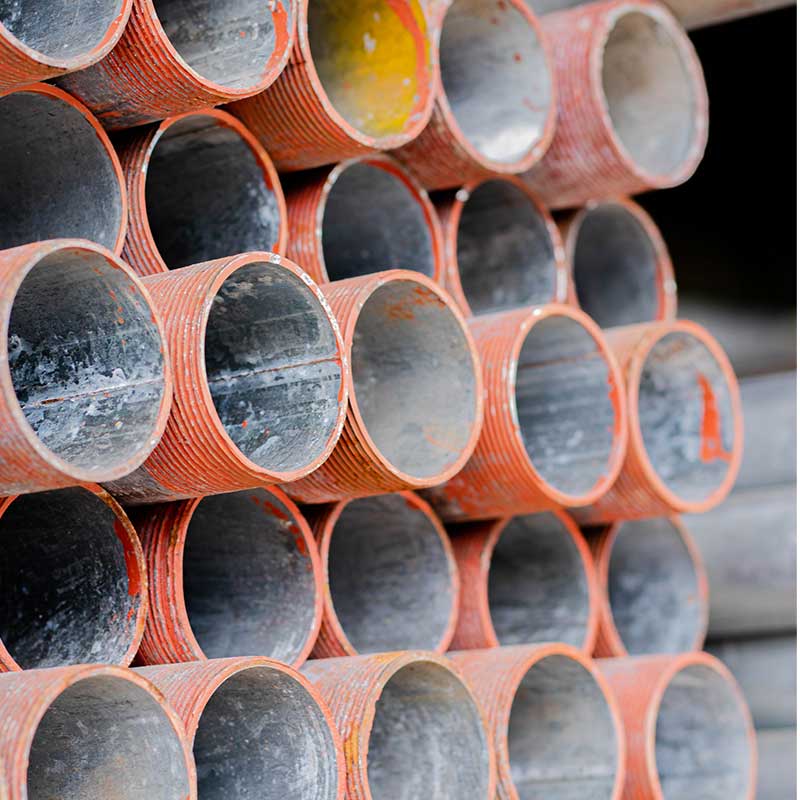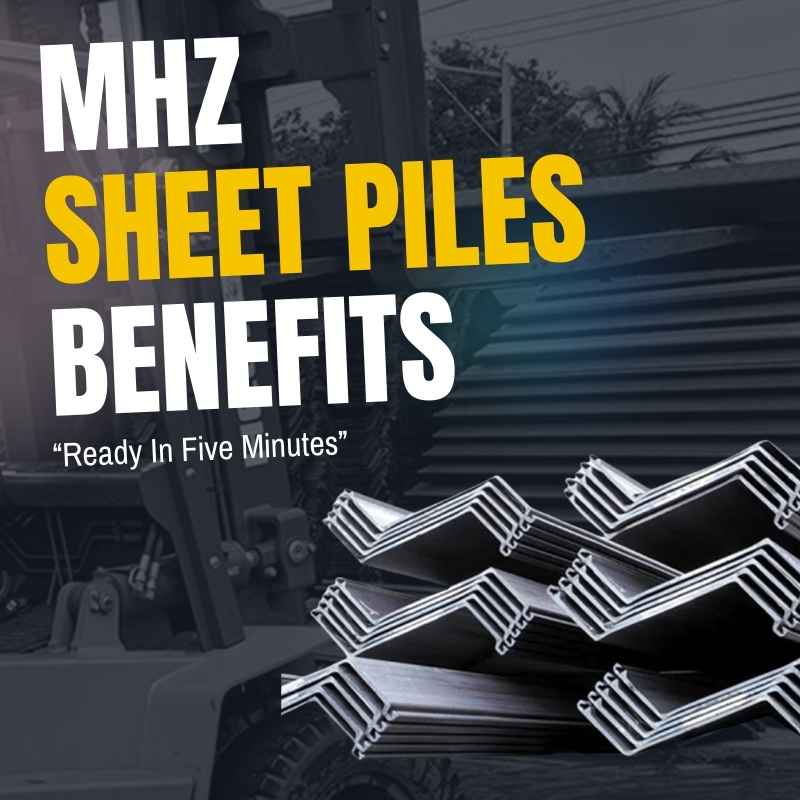What Are Deformed Bars?
Deformed bars (also known as rebar or “kabilya” in the Philippines) are steel reinforcing bars with surface projections and indentations (“ribs”) that provide superior bonding with concrete compared to traditional smooth rebars. These bars form the skeleton or foundation of construction projects, designed to withstand significant tension loads and pressure throughout the building process.
Key Characteristics
Cylindrical steel bars with ridges and indentations
Enhanced bond strength with concrete
Designed to improve tensile strength in concrete structures
Essential for structural integrity in building projects
Glass Fiber Reinforced Polymer (GFRP) Bars
Welded Wire Fabric
Sheet Metal Reinforcing Bars
Quality Standards for Deformed Bars
Why Are Deformed Bars Important in Construction?
Concrete has excellent compressive strength but poor tensile strength, meaning it easily fails when pulled or stretched. Deformed bars address this weakness by:
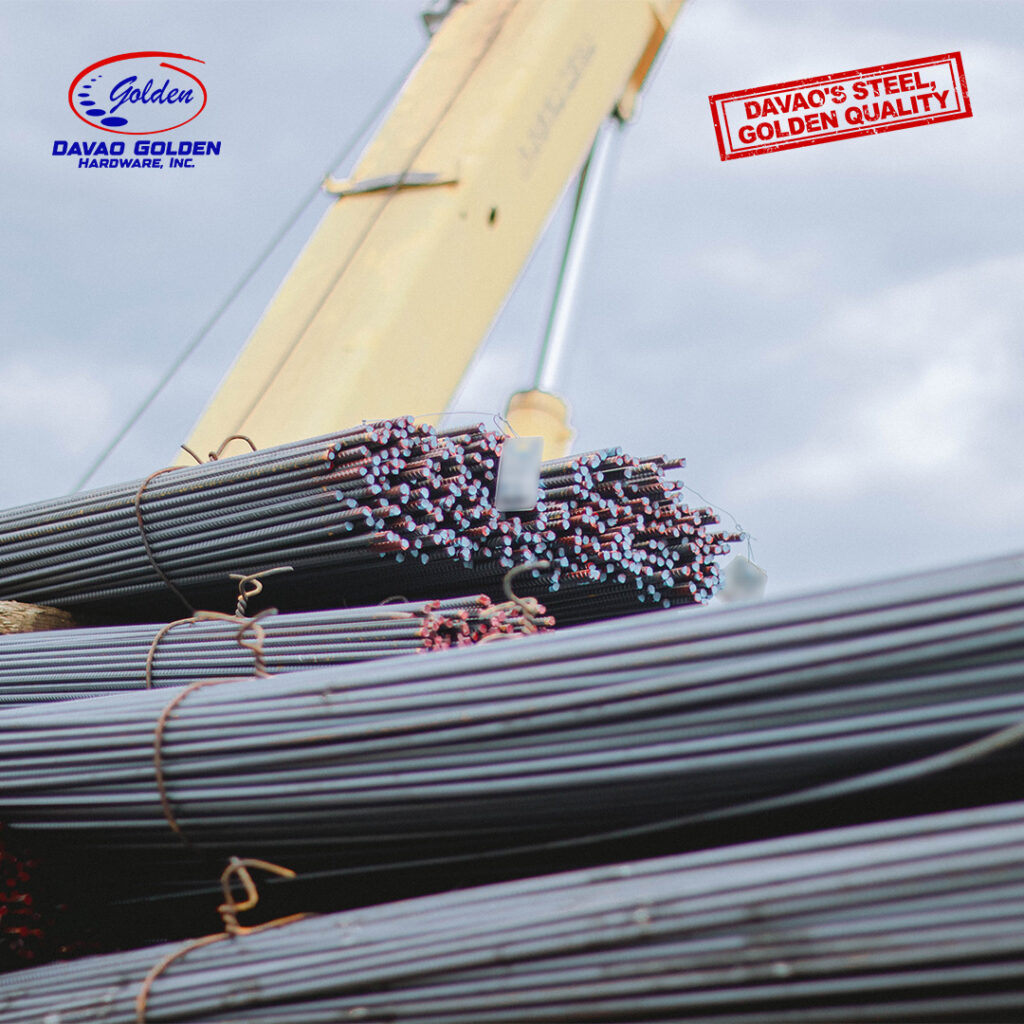
Improving tensile strength
The ribbed surface creates strong mechanical bonding with concrete
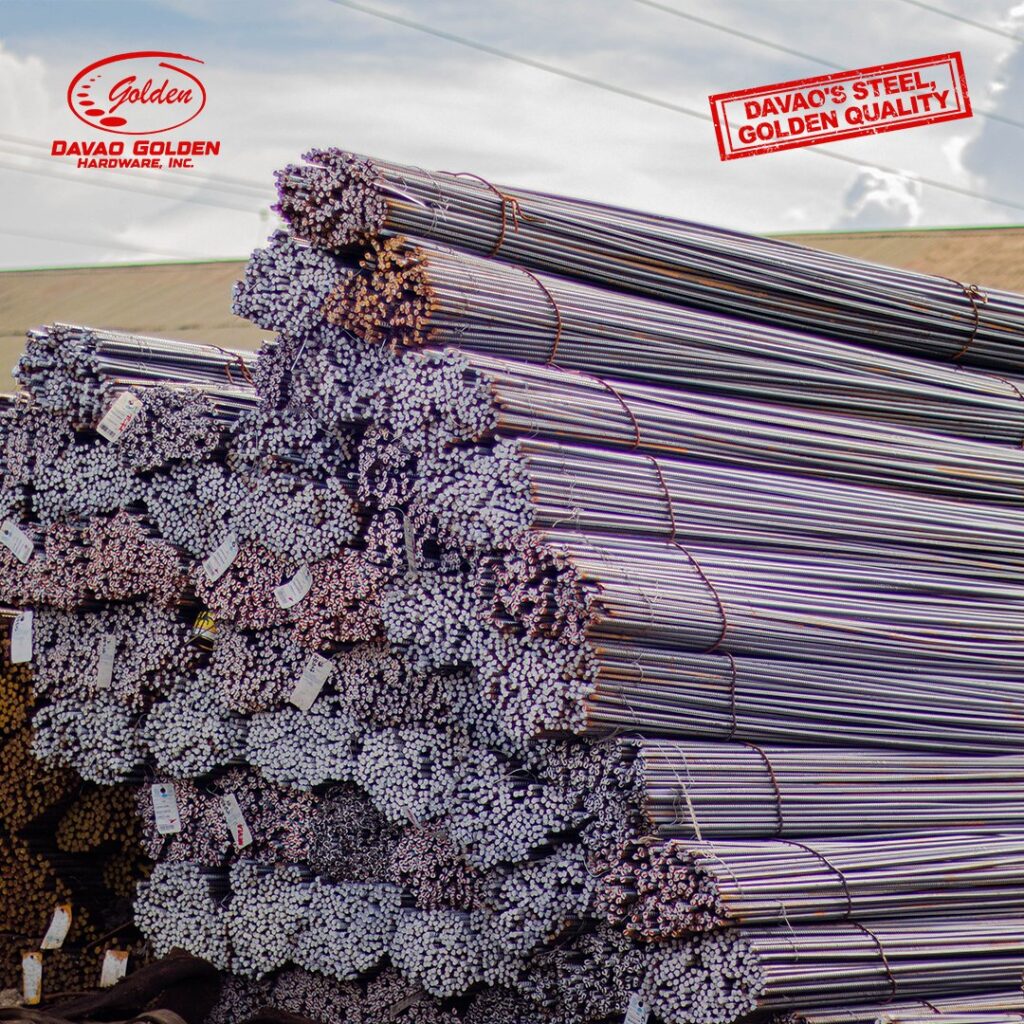
Preventing structural failure
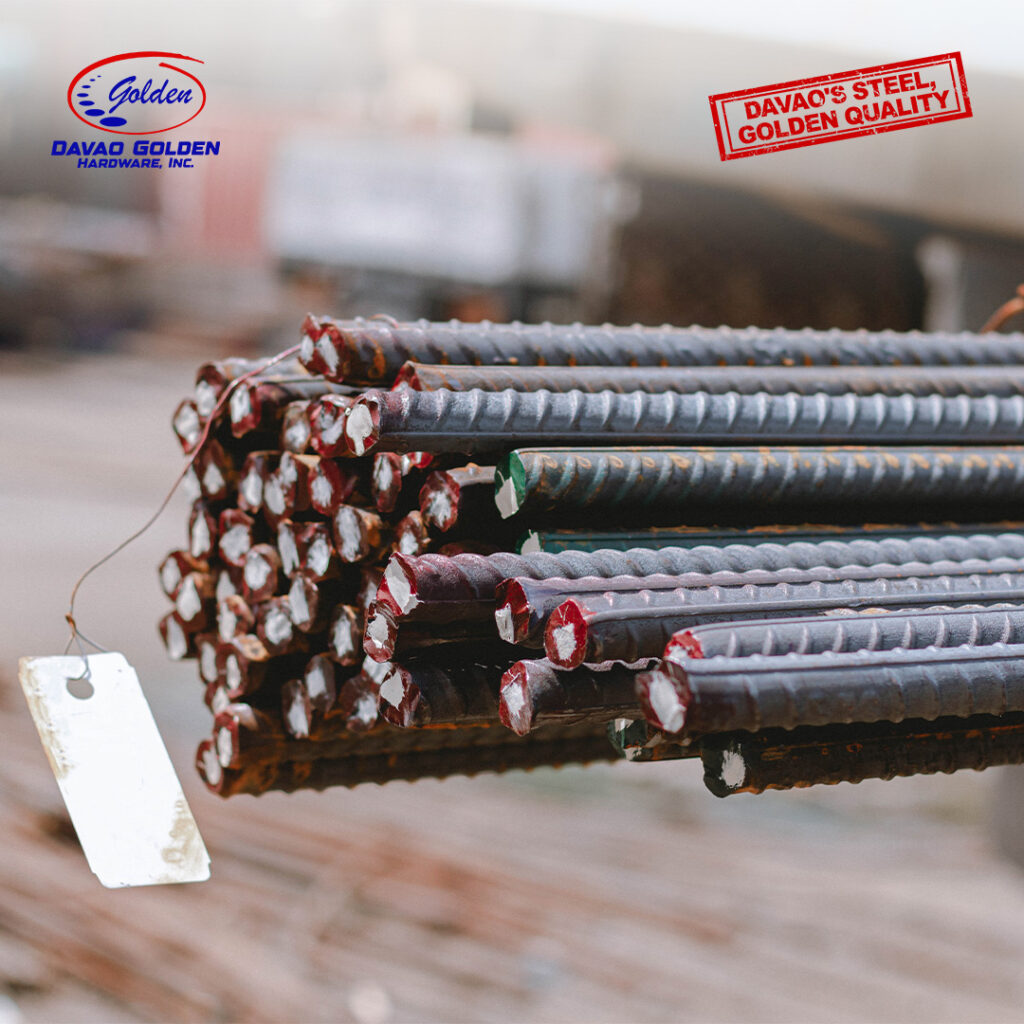
Enhancing durability
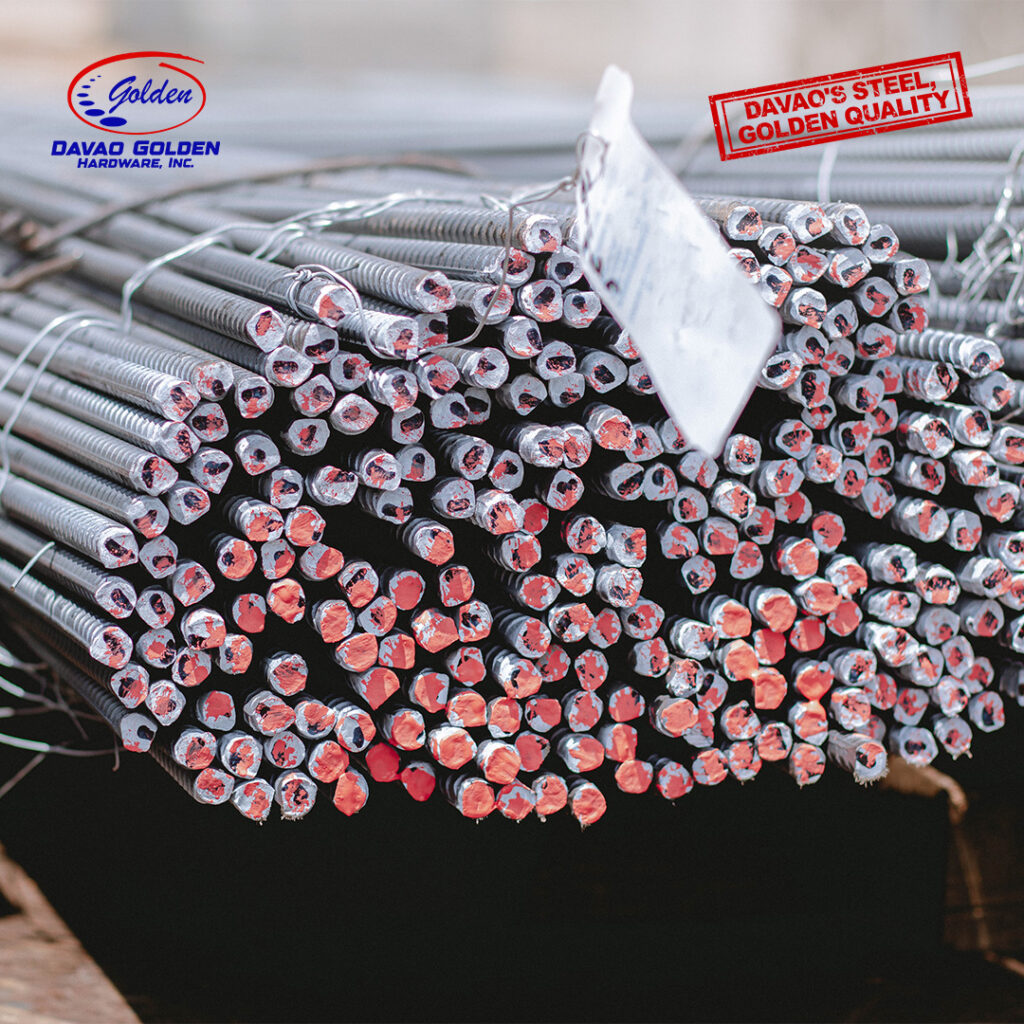
Enabling complex designs
Types of Deformed Bars Available in the Philippines
By Material Composition
1. Carbon Steel Deformed Bars
- Most common and economical option
- Suitable for standard construction projects
- Not recommended for high-humidity environments due to corrosion risk
2. Stainless Steel Deformed Bars
- Higher corrosion resistance than carbon steel
- Ideal for structures exposed to moisture
- More expensive but longer-lasting in challenging environments
3. Galvanized Deformed Bars
- Zinc-coated for superior corrosion resistance
- Perfect for structures exposed to water and humidity
- Cost-effective alternative to stainless steel for moisture protection
4. Epoxy-Coated Deformed Bars
- Specifically designed for saltwater exposure
- Extremely corrosion-resistant
- Important to source from reputable suppliers to avoid imitations
5. Glass Fiber Reinforced Polymer (GFRP) Bars
- Non-corrosive alternative to steel
- Significantly more expensive (up to 10x the cost of standard options)
- Used in specialized applications where corrosion must be eliminated
By Grade (Tensile Strength)
- Grade 33 (33,000 psi yield strength)
- Grade 40 (40,000 psi yield strength) - Common for residential projects
- Grade 60 (60,000 psi yield strength) - Standard for commercial buildings
- Grade 75 (75,000 psi yield strength) - For heavy-duty applications
By Size (Diameter)
- 10mm
- 12mm
- 16mm
- 20mm
- 25mm
- 28mm
- 32mm
- 36mm
Applications of Deformed Bars
Deformed bars are versatile construction materials used in:
1. Carbon Steel Deformed Bars
- Foundations
- Columns and beams
- Slabs and floors
- Retaining walls
2. Commercial Buildings
- High-rise structures
- Commercial complexes
- Industrial facilities
- Parking structures
3. Infrastructure Projects
- Bridges and flyovers
- Dams and water systems
- Tunnels
- Roads and highways
4. Special Applications
- Seismic-resistant structures
- Marine and coastal constructions
- Nuclear facilities
- Underground structures
According to The Constructor, proper reinforcement detailing is crucial for ensuring these applications meet design requirements and building codes.
Applications of Deformed Bars
In the Philippines, deformed bars must meet specific quality standards to ensure structural safety and reliability:
Philippine National Standards (PNS)
- PNS 49 – Standard specification for deformed billet-steel bars
- PNS 211 – Standard specification for carbon steel bars for concrete reinforcement
International Standards
- ASTM A615/A615M – Standard Specification for Deformed and Plain Carbon-Steel Bars
- ASTM A706/A706M – Standard Specification for Deformed Low-Alloy Steel Bars
These standards align with recommendations from the American Concrete Institute (ACI), which provides comprehensive guidance on reinforced concrete design and construction practices worldwide.
Quality Inspection Points
- Chemical composition – Ensures proper carbon and alloy content
- Tensile strength – Must meet minimum requirements based on grade
- Yield strength – Critical for load-bearing calculations
- Elongation percentage – Indicates ductility
- Bend test performance – Demonstrates flexibility without fracturing
How to Choose the Right Deformed Bars
Selecting the appropriate deformed bars depends on several factors:
Project requirements
Environmental conditions
Budget considerations
Installation factors
Advantages of Using Quality Deformed Bars
- Superior structural integrity – Enhanced bonding with concrete creates stronger structures
- Improved safety factor – Better resistance to earthquakes and other natural disasters
- Extended building lifespan – Quality reinforcement reduces deterioration over time
- Cost-effectiveness – Higher initial quality reduces maintenance and repair costs
- Versatility in design – Enables more complex and innovative building designs
Frequently Asked Questions About Deformed Bars
What is the difference between plain and deformed bars?
Plain bars have smooth surfaces while deformed bars feature ridges, ribs or patterns that increase bonding with concrete. Deformed bars provide significantly stronger mechanical bonding, making them the preferred choice for most structural applications.
Why are deformed steel bars important?
Deformed steel bars are crucial because they dramatically improve the tensile strength of concrete structures. Concrete alone has poor tensile strength; adding deformed bars creates a composite material capable of withstanding both compression and tension forces.
What is the purpose of bent up bars?
Bent up bars are used to resist shear forces in beams and slabs. By bending the bars at strategic angles, engineers can provide reinforcement exactly where tensile forces are greatest, improving structural performance while optimizing material usage.
What is grade 40 rebar used for?
Grade 40 rebar (40,000 psi yield strength) is commonly used in residential construction and lighter commercial applications where extreme loads are not expected. It’s suitable for foundations, driveways, patios, and similar applications.
What grade are deformed bars?
Deformed bars come in various grades including 33, 40, 60, 75, and higher. In the Philippines, Grade 40 and Grade 60 are most commonly used, with Grade 60 being the standard for most commercial and infrastructure projects.
What is the standard size of steel bars in the Philippines?
Standard sizes in the Philippines range from 10mm to 36mm in diameter, with 10mm, 12mm, 16mm, and 20mm being the most commonly used sizes in residential and commercial construction.
How to compute the number of rebars?
The number of rebars required depends on structural calculations based on:
- Area of reinforcement needed (from structural design)
- Cross-sectional area of selected rebar size
- Spacing requirements from building codes
Number of rebars = Total area of reinforcement needed ÷ Cross-sectional area of one rebar
For more detailed calculation methods, Civil Engineering Portal provides comprehensive guides on reinforcement calculations that follow international standards.
Which is stronger, grade 40 or grade 60 rebar?
Grade 60 rebar is stronger than grade 40, with a minimum yield strength of 60,000 psi compared to 40,000 psi for grade 40. This makes grade 60 more suitable for structures requiring higher tensile strength.
Which grade of steel is the strongest?
Among common construction grades, Grade 75 and higher specialty grades like Grade 80 and Grade 100 offer the highest strength. However, higher grades are not always better – the appropriate grade depends on specific project requirements.
What is the strongest type of rebar?
Ultra-high-strength steel rebar (Grade 100 and above) and specialty composite rebars like GFRP (Glass Fiber Reinforced Polymer) can provide exceptional strength for specific applications. However, standard Grade 60 and Grade 75 remain the most common high-strength options.
Which steel is best for construction?
The “best” steel depends on application requirements:
- For general construction: Grade 60 deformed bars
- For corrosive environments: Stainless steel or epoxy-coated rebar
- For marine applications: Galvanized or epoxy-coated rebar
- For specialty needs: GFRP or high-grade specialty steel
High-Quality Deformed Bars at Davao Golden Hardware
At Davao Golden Hardware, we provide premium-quality deformed bars that meet or exceed all Philippine and international standards. Our deformed steel bars are available in various grades and sizes to suit any construction project, large or small.
Browse our complete selection of deformed steel bars or contact our expert team for personalized recommendations for your specific construction needs.
Related Products
Additional Resources
- Department of Public Works and Highways (DPWH) Standards
- World Steel Association – Construction Applications
- Philippine Institute of Civil Engineers – For professional guidance on construction standards
Need assistance selecting the right deformed bars for your project? Contact our team for expert advice and competitive pricing.


